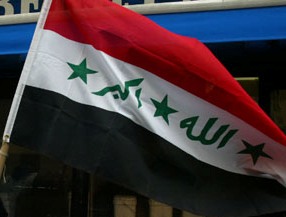
| ||||||||
Excerpt from Understanding Iraq | ||
William Polk HarperCollins | ||
|
The most concise, readable, reasonable, expert, and spot-on summary of the Iraq mess and what to do about it that I've found is the 200-page Understanding Iraq, by William R. Polk. Polk has been a professor of Middle Eastern history and politics, of Arabic, and was on the Policy Planning Council for the State Department. He's spent significant time on the ground in the Middle East as well. You can check out his website.
Here's his summary of what we should do now: At best, "staying the course" can only be a temporary measure as eventually America will have to leave. But during the period it stays, say the next five years, my guess is that another thirty or forty thousands Iraqis will die or be killed while the U.S. armed forces will lose perhaps five thousands dead and twenty thousands seriously wounded. The monetary cost will be hundreds of billions... In carrying out this policy we can be sure of two things: the first is that Iraq will suffer grievously and the society that survives will be wounded, distorted, and far less than now likely to achieve a reasonably free and peaceful future. The second is that domestically American society will be angry, dispirited, and less democratic than today while internationally it will have lost much of the moral force that throughout its history, from the very Declaration of Independence, has been its most valued and most potent asset. Time is a wasting asset; the longer the choice is put off, the harder it will be to make. The steps required to implement this policy need not be dramatic, but the process needs to be affirmed. Thus, initial steps could be merely verbal. America would have first to declare unequivocally that it will give up its lock on the Iraqi economy, will cease to spend Iraqi revenues as it chooses, and will allow Iraqi oil production to be governed by market forces rather than by an American monopoly. If an American administration could be as courageous as General Charles de Gaulle was in Algeria, when he admitted that the Algerian insurgency had "won" and called for a "peace of the brave," fighting would quickly die down as it did there and in all other guerrilla wars. Then, and only then, could elections be meaningful. In this period, Iraq would need a police force but not an army. A UN multinational peacekeeping force would be easier, cheaper, and safer than creating an Iraqi army which in the past destroyed moves toward civil society and probably would do so again, probably indeed paving the way for another Saddam Husain. A variety of "service" functions would then have to be organized. Given a chance, Iraq could do them mostly by itself. It would soon again become a rich country and has a talented, well-educated population. Step by step, health care, clean water, sewage, roads, bridges, pipelines, electric grids, housing, etc., could be mainly provided by the Iraqis themselves, as they were in the past. When I visited Baghdad in February 2003 on the eve of the invasion, the Iraqis with whom I talked were proud that they had rebuilt the Tigris bridge and other facilities that had been destroyed in the 1991 war. The can surely do so again. In its own best interest, the Iraq government would empower the National Iraq Oil Company (NIOC) to award concessions by bid to a variety of international companies, each of which and NIOC would sell oil on the world market. Contracts for reconstruction paid for by Iraqi money would be awarded under bidding, as they traditionally were... Abrogating current American policies that work against the recovery of Iraqi industry and commerce would spur development since any reasonably intelligent and self-interested government would emphasize getting Iraqi enterprises back into operation and employing Iraqi workers. That process could be speeded up through international loans, commercial agreements and protective measures so that unemployment, now at socially catastrophic levels, would be diminished. Neighborhood participation in running social affairs and providing security are old traditions in Iraqi society and allowing or favoring their reinvigoration would promote the excellent side effect of grassroots political representation. As fighting dies down, reasonable security is achieve and popular institutions revive, the one million Iraqis now living abroad will be encouraged to return home. In the aggregate they are intelligent, highly trained, and well motivated and can make major contributions in all phases of Iraqi life. In such a program, inevitably, there will be setback and shortfalls, but they can be partly filled by international organizations. The steps will not be easy; Iraqis will disagree over timing, personnel, and rewards, while giving the process a chance will require American political courage. But, and this is the crucial matter, any other course of action would be far worse for both America and Iraq. The safety and health of American society as well as Iraqi society requires that this policy be implemented intelligently, determinedly, and soon. | ||